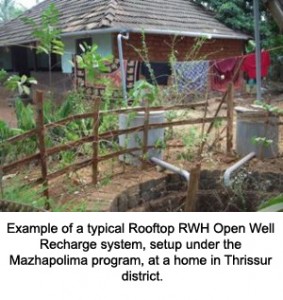Manohar Rao
Optimising water resources for agricultural productivity
Posted on 05 Jan, 2024 04:15 PMOur needs are numerous, with food, clothing, and shelter being our basic requirements. Ensuring basic food security is paramount for any country, as relying on others for our survival is quite risky. Fortunately, rice and wheat are the two prominent staple food crops that are widely and abundantly grown in India to feed the masses.

Best practices in IEC-HRD to engage rural communities based on JJM - Karnataka experience
Posted on 11 Aug, 2021 02:02 PMWhat does IEC-HRD mean for large-scale programs such as Jal Jeevan Mission (JJM)?

Managing commons: Need and challenges
Posted on 06 Feb, 2020 07:17 PMCommon pool resources, popularly known as “commons”, are those resources which are accessible to the whole community or village and to which no individual has exclusive ownership or property rights. Commons have two essential characteristics: non-excludability and high-subtractability.

Mazhapolima - A community based well recharge programme
Posted on 04 Sep, 2009 05:34 PMWhen stakeholders come together, they can address critical water related issues.
"Mazhapolima"? : Participatory well recharge programme in Thrissur district, Kerala, part 2
Posted on 13 Apr, 2009 03:35 PMThe Mazhapolima program is quite unique; it aims to (eventually) recharge about 4.5 lakh dug wells in the district, and do this through community awareness and action. It's driven by the District Collector, Mr. Kurian Baby, who strongly advocates sustainable, local development & innovation.
A Gram Panchayat (GP) in Kerala is fairly large, and has a population of approximately 20000 people, as compared to about 10000 in Karnataka, and about 700 in Uttar Pradesh. GP's have ward divisions, about 20 of them per GP. Each GP has a staff of at least 6-8 people. The GP that we visited - Adat, had about 12 employees , 4 lower division clerks, 3 upper division clerks, 1 Joint Secretary, 1 Secretary, 2 peons and 1 sweeper. Except for the peons and the sweeper, the employees are all usually SSLC-pass, but here in Adat they were mostly graduates. For salaries alone, the GP spends about Rs 1.5 lakhs per month. Adat GP executed 124 projects last year. The GP's annual budget was Rs 1.40 crores, not including NREGA funds. Out of this, Rs 40 lakhs was raised by the GP through property taxes etc. Most other parts of the country, GP budgets are only about 5 to 10 lakhs. The Adat GP office was a large 2 storeyed building. Mr Vijayan, the Joint Secretary proudly showed us their awards, which filled up an entire wall.
